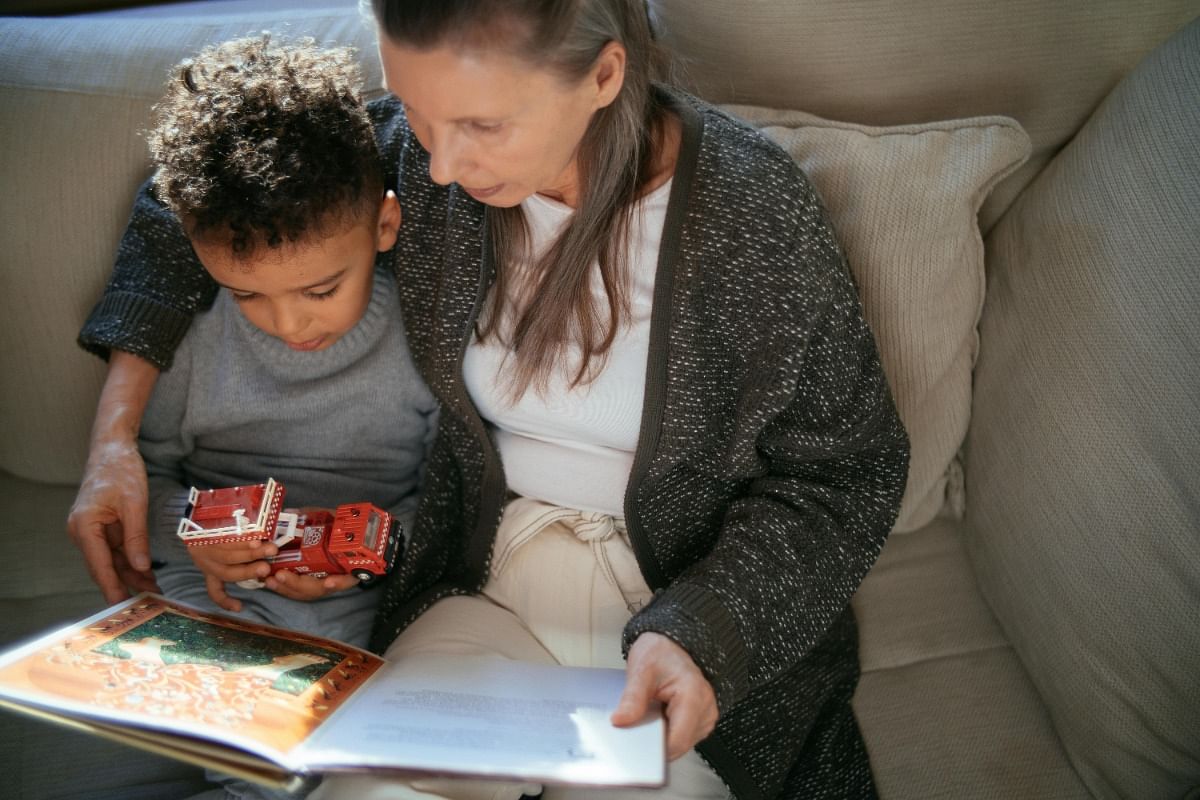When is Hospice Called for Cancer Patients
When a loved one is diagnosed with cancer, the news can be devastating. While traditional treatments like surgery, chemotherapy, and radiation are often the focus in the early stages, there comes a point where the disease may be less responsive to curative measures. This is where hospice care can play a crucial role. Many people mistakenly believe that hospice is only for patients who are in their final days of life, but that is not the case. Hospice care is designed to provide compassionate support and comfort when a cancer patient’s treatment options are limited, focusing on improving their quality of life in their remaining time. For cancer patients and their families, understanding when hospice care may be appropriate is an important step in navigating the challenges of advanced illness.

Understanding Hospice Care for Cancer Patients
Hospice care is specialized care designed to provide relief from the symptoms of a serious or terminal illness, like cancer, when curative treatments are no longer effective or desired. It is about enhancing comfort, improving the quality of life, and providing emotional, spiritual, and physical support to both the patient and their family. Unlike curative care, which aims to treat or eradicate the disease, hospice care focuses solely on comfort, symptom management, and dignity.
For cancer patients, hospice care typically involves a team of professionals—doctors, nurses, social workers, and chaplains—who work together to address the patient’s specific needs. Pain management is a major component of hospice care, as cancer-related pain can be severe and difficult to control with traditional treatments. In addition to pain management, hospice focuses on managing other symptoms like nausea, shortness of breath, fatigue, and loss of appetite, ensuring that patients feel as comfortable as possible during their remaining time.
While some people may associate hospice care with end-of-life care, it can be a valuable resource much earlier in the course of cancer treatment. Patients may be referred to hospice care when their disease reaches an advanced stage, but it’s also suitable for patients who are no longer responding to aggressive treatments and are seeking relief from symptoms, even if they are not yet at the end stage of their illness. The goal of hospice is not to hasten death but to ensure that cancer patients live their final months, weeks, or days with dignity and as little suffering as possible.
5 Signs It's Time for Hospice Care
1) Advanced Cancer Stage: When cancer reaches an advanced or terminal stage, curative treatments may no longer be effective. Hospice care becomes a compassionate option, focusing on comfort rather than cure. Patients in this stage often experience significant physical decline and benefit greatly from symptom management provided by hospice.
2) Frequent Hospitalizations: Repeated trips to the hospital or emergency room can indicate that managing the illness has become increasingly difficult. Hospice care can help reduce the need for hospital visits by providing comprehensive care at home, addressing symptoms like pain, shortness of breath, and nausea.
3) Significant Weight Loss and Fatigue: A noticeable decline in physical health, such as rapid weight loss, extreme fatigue, or weakness, can signal that the patient’s body is struggling to cope with the illness. Hospice care can provide tailored nutrition plans and supportive therapies to address these issues and enhance comfort.
4) Unmanageable Pain: When pain becomes severe and difficult to control, hospice care offers advanced pain management strategies. Through specialized medications and therapies, hospice teams ensure that patients are as comfortable as possible.
5) Shift in Goals of Care: If a patient or their family decides to focus on comfort and quality of life rather than pursuing aggressive treatments, hospice care provides the necessary support. This transition often reflects a desire to prioritize meaningful time with loved ones over undergoing potentially distressing medical procedures.
These clinical markers are common in advanced cancer and can guide families toward supportive services that meet them where they are.
It also helps to look at the treatment trajectory. When the cancer has progressed despite multiple therapies, or when the side effects of treatment outweigh any expected benefit, many people choose to prioritize comfort. That decision is not a failure. It is an honest recognition of what the body needs and what the person values. Hospice teams are skilled at easing symptoms that frequently accompany advanced cancer, including pain, shortness of breath, restlessness, constipation, insomnia, and anxiety. Early enrollment allows time to fine tune medications, deliver equipment, and establish relationships that make each day safer and more manageable at home.

The Role of Family and Healthcare Providers in Deciding When to Call Hospice
Family Involvement: The decision to transition to hospice care for a cancer patient is deeply personal and often requires input from family members. Cancer patients may have complex emotions regarding end-of-life decisions, and family members are crucial in providing support and helping guide those decisions. Having open, honest conversations with loved ones can help ensure that the patient’s wishes are honored, and it allows the family to understand the potential benefits of hospice care. In many cases, families become the primary caregivers, and knowing when to seek hospice can alleviate stress and provide them with the resources and support they need to care for their loved one.
Healthcare Team Recommendations: Oncologists, primary care physicians, and other medical professionals who are familiar with the patient’s specific condition play an important role in recommending hospice care. These healthcare providers have a clear understanding of the patient’s prognosis and can offer expert guidance on when curative treatments are no longer effective. While the decision ultimately rests with the patient and their family, a physician’s recommendation can help patients and their families understand when hospice care is the right choice. Physicians are trained to assess the patient’s quality of life, and their input can help families navigate this challenging decision with confidence.
Benefits of Early Hospice Enrollment for Cancer Patients
Improved Quality of Life: One of the primary benefits of enrolling in hospice care early is the opportunity to focus on the patient’s comfort and well-being without the stress of ongoing, aggressive treatments. Early hospice care provides a more holistic approach to cancer management, where the focus shifts from curative treatments to symptom relief. By managing pain, nausea, fatigue, and other cancer-related symptoms, patients can experience a higher quality of life, even in the advanced stages of their illness. Hospice care is designed to help patients feel more at ease, allowing them to spend their remaining time in comfort, surrounded by their loved ones.
Support for Families: Hospice care doesn’t just benefit the cancer patient—it also provides crucial support for families. Caring for a loved one with cancer can be physically, emotionally, and mentally exhausting, and family members often find themselves in the position of full-time caregivers. Hospice provides respite care, allowing family members to take a break, rest, or manage their own needs while ensuring that their loved one is receiving professional care. Additionally, hospice care includes bereavement support, which can be vital for families coping with the emotional stress of caring for a terminally ill loved one. Hospice teams also offer guidance on how to handle complex caregiving situations and provide emotional counseling to help family members process their feelings.
Holistic Care Approach: Hospice care is holistic, which means it addresses not only the physical aspects of cancer care but also the emotional, psychological, and spiritual needs of patients. For cancer patients, this comprehensive approach can make a significant difference in their overall well-being. Social workers, chaplains, and counselors are part of the hospice team and offer services such as spiritual counseling, emotional support, and help with end-of-life planning. These services help patients and families cope with the mental and emotional challenges of facing a terminal illness, ensuring that the patient feels supported and cared for throughout their journey. Hospice also respects the patient’s personal beliefs and values, providing care that aligns with their spiritual and cultural preferences.
Common Myths About Hospice for Cancer Patients
Myth 1: Hospice is Only for the Final Days of Life: Many people believe that hospice care is only appropriate when death is imminent. However, hospice can be beneficial long before the final days. Hospice care can be introduced when curative treatments are no longer effective, and the focus shifts to managing symptoms and improving quality of life. By enrolling in hospice early, patients can experience relief from pain, fatigue, and other cancer-related symptoms, which allows them to live more comfortably during their remaining time.
Myth 2: Hospice Care Hastens Death: Some individuals mistakenly think that hospice care hastens death, but this is not the case. Hospice care is focused on symptom management and comfort, not on prolonging or shortening life. Studies show that patients who receive hospice care often live as long as, or even longer than, those who continue with aggressive treatments. Hospice does not interfere with the natural course of illness; rather, it helps patients feel more comfortable as they approach the end of life.
Myth 3: Hospice Means Giving Up: Another common myth is that choosing hospice care means giving up hope. In fact, hospice care is a positive, proactive approach that focuses on providing dignity, comfort, and support when treatment options are no longer viable. Hospice allows patients to focus on living the rest of their lives with quality and dignity, rather than pursuing treatments that may cause discomfort or distress. It’s about making the most of the time that remains, with a focus on what matters most to the patient.
Finally, some worry that hospice will stop all medications. Hospice teams continue medications that relieve symptoms and support quality of life, while avoiding burdensome treatments that do not offer benefit at this stage.
What Hospice Covers and How It Works
For people with Medicare, the hospice benefit is available when a physician and the hospice medical director certify a life expectancy of about six months if the disease follows its usual path. Coverage continues as long as the hospice physician reaffirms eligibility, and care is organized in benefit periods that allow people to remain on hospice for as long as they qualify. The benefit includes physician and nursing care, medications related to the terminal diagnosis, medical equipment such as a hospital bed or oxygen, supplies, counseling, and support for caregivers.
Most hospice care takes place at home, yet there are additional levels of care for short term needs, including continuous care at home during crises and inpatient care for symptom management that cannot be handled elsewhere. Families should know that the benefit is designed to reduce costs and stress by bringing the right services into the home, and that choosing hospice does not prevent a person from leaving hospice later if goals change.
Cost and Coverage Basics
Most Anvoi Hospice patients are covered by Medicare or Medicaid, and many private insurance plans follow similar rules. For eligible individuals, Medicare covers the services related to the terminal diagnosis with little or no out of pocket cost, including nursing visits, medications for symptom control, equipment, and counseling. If a person lives longer than six months, coverage continues as long as the hospice medical director reaffirms eligibility. People can change their minds at any time. If goals shift back toward disease directed treatment, a simple revocation returns the person to standard benefits, and hospice can be resumed later if needed. Understanding these protections gives families permission to try hospice and experience its support without fear of losing options.
When the “Right Time” Becomes Clear
The right time for hospice is usually the point when quality of life becomes the priority, symptoms need closer attention, and trips to the hospital feel more like burdens than help. It is the moment when the next treatment offers little benefit or would likely take precious energy without improving comfort. It is also the moment when families need practical guidance, emotional support, and a team that will walk into the living room with solutions and care. People often tell us they wish they had called sooner. Our encouragement is simple: If you are asking the question, it may already be time to explore how hospice can help.
Ready to Find Comfort? Discover How Hospice Care Can Help
If you or a loved one is dealing with cancer, it’s important to know when hospice care can offer the most benefit. At Anvoi, we specialize in providing compassionate care that focuses on comfort, dignity, and quality of life. If you’re ready to explore your options and learn how hospice can make a difference, contact us today. Let us guide you through this challenging time with the support you need










